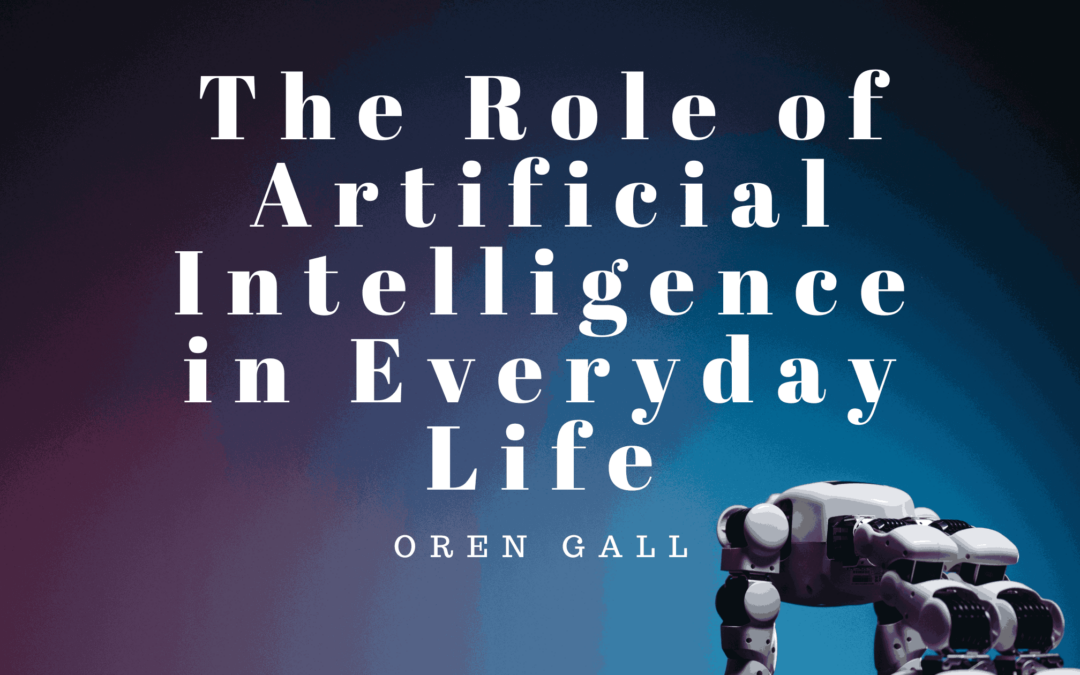Artificial Intelligence (AI) has swiftly transitioned from being a futuristic concept to an integral part of our daily lives. From helping us navigate our day more efficiently to revolutionizing industries, AI’s impact is profound and far-reaching. This blog explores how AI has embedded itself into our routines, its advantages, and the ethical concerns surrounding its widespread adoption.
What is Artificial Intelligence?
At its core, Artificial Intelligence refers to the ability of machines to mimic human intelligence. This encompasses learning, reasoning, problem-solving, understanding language, and even recognizing emotions. The technology powers numerous applications designed to make life easier, smarter, and more efficient.
How AI Shapes Our Daily Lives
- Smart Assistants
AI powers virtual assistants like Siri, Alexa, and Google Assistant, which help manage schedules, provide weather updates, and control smart home devices. These assistants leverage natural language processing (NLP) to understand and respond to human speech effectively. - Personalized Recommendations
Whether you’re scrolling through Netflix or shopping on Amazon, AI algorithms analyze your preferences and behaviors to suggest content or products tailored to your taste. This personalization enhances user experience and fosters engagement. - Navigation and Traffic Management
Apps like Google Maps and Waze use AI to provide real-time traffic updates, suggest optimal routes, and even predict future traffic patterns based on historical data. - Healthcare and Fitness
Wearables like Fitbit and Apple Watch monitor vital health metrics, providing insights powered by AI. Moreover, AI-driven applications help doctors analyze medical data, aiding in faster and more accurate diagnoses. - Social Media Algorithms
Platforms like Facebook, Instagram, and TikTok use AI to curate feeds, highlight trending topics, and even moderate content. The algorithms ensure users engage with content relevant to their interests.
The Advantages of AI Integration
- Efficiency and Convenience: AI eliminates repetitive tasks, automating processes like email sorting, bill payments, and more.
- Enhanced Decision-Making: AI analyzes massive amounts of data quickly, providing actionable insights for better decision-making.
- Cost Savings: In industries like manufacturing, AI-powered robots increase efficiency, reduce errors, and cut costs.
Ethical Considerations and Challenges
Despite its advantages, AI’s integration into daily life isn’t without challenges:
- Data Privacy
Many AI applications rely on user data to function effectively. Concerns about how this data is collected, stored, and used remain a significant issue. - Bias in Algorithms
AI systems can inadvertently reflect biases present in their training data, leading to unfair outcomes in applications like hiring or lending. - Job Displacement
Automation powered by AI threatens jobs in certain sectors, raising concerns about unemployment and the need for reskilling workers. - Autonomy and Control
As AI systems become more sophisticated, questions arise about their autonomy and the extent to which humans can control them.
The Future of AI in Everyday Life
AI is poised to play an even bigger role in the future. Advances in areas like autonomous vehicles, smart cities, and healthcare promise significant benefits. However, these developments must be balanced with robust policies to address ethical concerns.
Artificial Intelligence has undeniably become a cornerstone of modern life, enhancing convenience, productivity, and innovation. However, as we embrace AI’s potential, it’s crucial to remain vigilant about its implications, ensuring its development aligns with societal values and ethics. With the right approach, AI can continue to improve our lives in ways we once only imagined.
